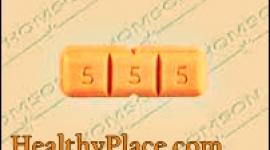Medication Treatments for ADHD - Methylphenidate HCL and Sustained - Release Preparations
Methylphenidate HCL (Ritalin) and sustained-release preparations (Ritalin-SR, Concerta, Metadate CD):
 Ritalin is said to affect as much as a 70% improvement in those affected with ADHD. Ritalin is supposed to induce hyperperfusion [increase blood supply] to the frontal lobes of the brain. Of all the ADHD medications, Ritalin is the most inconsistently absorbed. Some adults and children absorb as much as 80-90% of the medication, whereas others only absorb 30-40% of a medication dose.
Ritalin is said to affect as much as a 70% improvement in those affected with ADHD. Ritalin is supposed to induce hyperperfusion [increase blood supply] to the frontal lobes of the brain. Of all the ADHD medications, Ritalin is the most inconsistently absorbed. Some adults and children absorb as much as 80-90% of the medication, whereas others only absorb 30-40% of a medication dose.
Methylphenidate is derived from the same family as cocaine and increases blood flow to the basal ganglia and decreases flow to frontal and motoric regions. The basal ganglia are involved in the control of movement. Parkinson's disease, for example, is caused by a degeneration of certain neurons located in the mid-brain that send axons to parts of the basal ganglia. Cerebral studies in persons with ADHD have shown cerebral hypoperfusion in the frontal lobe and decreased blood flow to the caudate nucleus. The amygdala, considered by some anatomists to be part of the basal ganglia, is located within the temporal lobe near its rostral tip. The side effects of Methylphenidate include facial tics and a delay in the onset of action.
Some important facts to remember about Ritalin & Methylphenidate:
- Its onset of action is rapid: 20-30 minutes.
- It has the shortest duration of action of 2-4 hours. Many children only benefit for 3 hours from medication.
- There may be a significant "rebound" when the medication wears off, constituted by over-agitation and/or anxiety.
Summary Drug Monograph:
Clinical Pharmacology:
The mode of action of Methylphenidate hydrochloride (Ritalin) in man is not completely understood, but methylphenidate presumably activates the brain stem arousal system and cortex to produce its stimulant effect.
There is neither specific evidence which clearly establishes the mechanism whereby methylphenidate produces its mental and behavioral effects in children, nor conclusive evidence regarding how these effects relate to the condition of the central nervous system.
Methylphenidate hydrochloride in extended-release tablets is more slowly but as extensively absorbed as in the regular tablets. Bioavailability of the MD Pharmaceutical Inc. methylphenidate hydrochloride extended-release tablet was compared to a sustained release reference product and an immediate-release product. The extent of absorption for the three products was similar, and the rate of absorption of the two sustained-release products was not statistically different.
Dosage and Aministration:
Children (6 years and over):
Methylphenidate hydrochloride should be initiated in small doses, with gradual weekly increments. Daily dosage above 60 mg is not recommended.
If improvement is not observed after appropriate dosage adjustment over a one-month period, the drug should be discontinued.
Tablets: Start with 5 mg twice daily (before breakfast and lunch) with gradual increments of 5 to 10 mg weekly.
Extended-Release Tablets: Methylphenidale hydrochloride extended-release tablets have a duration of action of approximately 8 hours. Therefore, the extended-release tablets may be used in place of the immediate-release tablets when the 8-hour dosage of methylphenidate hydrochloride extended-release tablets corresponds to the titrated 8-hour dosage of the immediate-release tablets. Methylphenidate hydrochloride extended-release tablets must be swallowed whole and never crushed or chewed.
If paradoxical aggravation of symptoms or other adverse effects occur, reduce dosage, or, if necessary, discontinue the drug.
Methylphenidate should be periodically discontinued to assess the child's condition. Improvement may be sustained when the drug is either temporarily or permanently discontinued. Drug treatment should not and need not be indefinite and usually may be discontinued after puberty.
Warnings:
Methylphenidate should not be used in children under six years, since safety and efficacy in this age group have not been established.
Sufficient data on safety and efficacy of long-term use of methylphenidate hydrochloride in children are not yet available. Although a causal relationship has not been established, suppression of growth ( i.e., weight gain, and/or height) has been reported with the long-term use of stimulants in children. Therefore, patients requiring long-term therapy should be carefully monitored. Methylphenidate should not be used for severe depression of either exogenous or endogenous origin. Clinical experience suggests that in psychotic children, administration of methylphenidate may exacerbate symptoms of behavior disturbance and thought disorder.
Methylphenidals should not be used for the prevention or treatment of normal fatigue states. There is some clinical evidence that methylphenidate may lower the convulsive threshold in patients with prior history of seizures, with prior EEG abnormalities in absence of seizures, a.d. very rarely, in absence of history of seizures and no prior EEG evidence of seizures. Safe concomitant use of anticonvulsants and methylphenidate has not been established. In the presence of seizures, the drug should be discontinued. Use cautiously in patients with hypertension. Blood pressure should be monitored at appropriate intervals in all patients taking methylphenidate, especially those with hypertension.
Symptoms of visual disturbances have been encountered in rare cases. Difficulties with accommodation and blurring of vision have been reported.
Drug Interactions:
Methylphenidate may decrease the hypotensive effect of guanethidine. Use cautiously with pressor agents and MAO inhibitors. Human pharmacologic studies have shown that methylphenidate may inhibit the metabolism of coumarin anticoagulants, anticonvulsants (phenobarbital, phenytoin, primidone), phenylbutazone, and tricyclic anti-depressants (imipramine, clomipramine, desipramine). Downward dosage adjustments of these drugs may be required when given concomitantly with methylphenidate.
Precautions:
Patients with an element of agitation may react adversely; discontinue therapy if necessary. Periodic C.C. differential, and platelet counts are advised during prolonged therapy.
Drug treatment is not indicated in all cases of this behavioral syndrome and should be considered only in light of the complete history and evaluation of the child. The decision to prescribe methylphenidate should depend on the physician's assessment of the chronicity and severity of the child's symptoms and their appropriateness for his/her age. Prescription should not depend solely on the presence of one or more of the behavioral characteristics.
When these symptoms are associated with acute stress reactions, treatment with methylphenidate is usually not indicated.
Long-term effects of methylphenidate in children have not been well established.
Adverse Reactions:
Nervousness and insomnia are the most common adverse reactions but are usually controlled by reducing dosage and omitting the drug in the afternoon or evening.
Other reactions indude hypersensitivity (including skin rash, urticaria, fever, arthralgia, exfoliative dermatitis, erythema multiforme with histopathological findings of necrotizing vasculitis, and thrombocytopenic purpura); anorexia; nausea; dizziness; palpitations; headache; dyskinesia; drowsiness; blood pressure and pulse changes, both up and down; tachycardia; angina; cardiac arrhythmia; abdominal pain; weight loss during prolonged therapy. There have been rare reports of Tourette's syndrome.
Toxic psychosis has been reported. Although a definite causal relationship has not been established, the following have been reported in patients taking this drug: instances of abnormal liver function, ranging from transaminase elevation to hepatic coma; isolated cases of cerebral arteritis and/or occlusion; leukopenia and/or anemia; transient depressed mood; a few instances of scalp hair loss.
In children, loss of appetite, abdominal pain, weight loss during prolonged therapy,insomnia, and tachycardia may occur more frequently; however, any of the other adverse reactions listed above may also occur.
next: Medication Treatments for ADHD - Pemoline (Cylert) for ADHD
~ adhd library articles
~ all add/adhd articles
APA Reference
Staff, H.
(2003, December 1). Medication Treatments for ADHD - Methylphenidate HCL and Sustained - Release Preparations, HealthyPlace. Retrieved
on 2026, March 4 from https://www.healthyplace.com/adhd/articles/medication-treatments-for-adhd-methylphenidate-hcl-and-sustained-release-preparations
